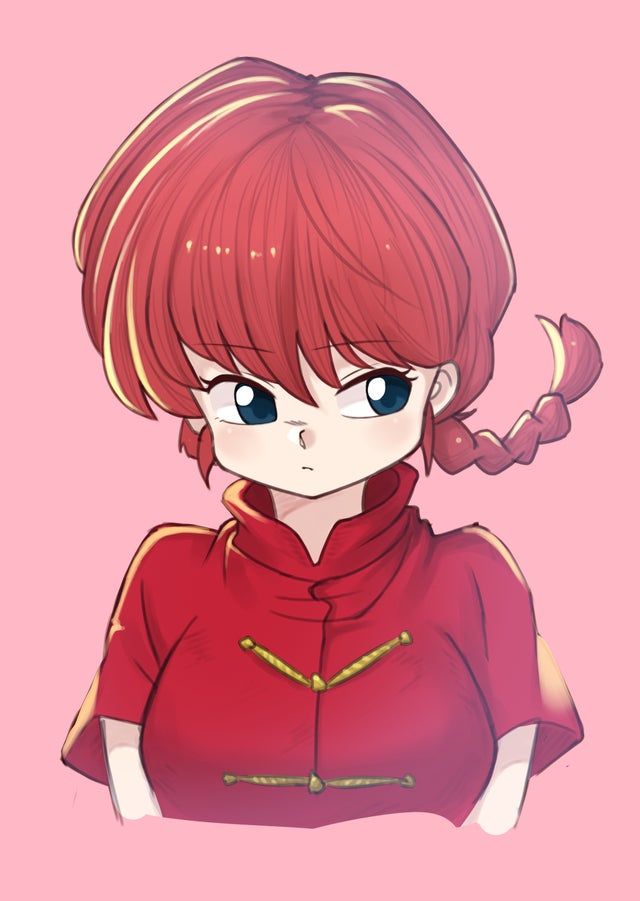Are they responsible for the conditions there?
Of course all of the other “China is imperialist” claims are bullshit but it seems like this is true and could potentially lead to valid accusations of imperialism or at least bad regulations.
What’s the reason for what’s going on in the Congo, I guess? What is happening on a detailed level? I can’t find many resources outside of blatantly western shit.
I know what’s going on and like the bad things but I’m asking why basically. Is it China?
Forgive the biased US source, but it seems the share of so-called artisanal mining in the DRC has been falling steadily since 2008 going from 40-53% to 9-11% in 2020. If China is responsible for conditions there, then China is responsible for improving conditions there.
If China can sell more cobalt ore of higher quality and cheaper than “artisanal miners” while not paying taxes, as an example, they could lead to the reduction of “artisanal miners”, that is, people who got their sustenance from mining, without actually improving anything or leading to less money getting to people and less money staying in the coutnry. So that reduction by itself doesn’t lookt like any evidence of “good” things as it could just as easily be reached by “bad” things.
This can be good but more information would be necessary to properly contextualize this I think.
Artisanal miners is a misnomer and I wouldn’t be surprised if it was picked on purpose. It implies some farm-to-table local miner who caringly nurtures the cobalt nuggets into a basket, but it’s not that. It actually refers to mining done without machinery and, by extension, often with no regard for safety or protection. Artisanal miners can be employed by companies as well as proletarians, except the work will be more dangerous. There’s also no implication in this activity that it pays better to do it solo than being paid by a company. I would assume most solo, low-gear miners sell their ore to one of many middlemen regardless and don’t make that much more money than if they were employed in a bigger mine. Their livelihood is predicated on their productivity in finding and mining ore, not on a wage. I’m not sure that’s necessarily better than wage labor.
Miners employed in mines that are partly owned by China (there are no mines owned 100% by chinese companies, they own shares in existing mines) are getting their sustenance from mining just like ‘artisanal miners’ are. Artisanal miners are just moving to those bigger companies instead when their activity dries up.
So are you saying that because the artisinal/manual mining is falling, and if China owns most of it, then it would follow that (if they really are responsible) that they’re responsible for things getting better.
Just typing it out to conceptualize, I’m pretty sure that’s what you’re saying and I agree then.
Yup, artisanal mining is a blight that has to be abolished, and while I’m disappointed it’s taking so long there has been a lot of progress.
Today, these laborers are assigned the quaint term artisanal miners, and they toil in a shadowy substrate of the global mining industry called artisanal and small-scale mining (ASM). Do not be fooled by the word artisanal into thinking that ASM involves pleasant mining activities conducted by skilled artisans. Artisanal miners use rudimentary tools and work in hazardous conditions to extract dozens of minerals and precious stones in more than eighty countries across the global south. Because ASM is almost entirely informal, artisanal miners rarely have formal agreements for wages and working conditions. There are usually no avenues to seek assistance for injuries or redress for abuse. Artisanal miners are almost always paid paltry wages on a piece-rate basis and must assume all risks of injury, illness, or death.
From here: https://mronline.org/2024/01/26/cobalt-red-how-the-blood-of-the-congo-powers-our-lives
It is great if the conditions for miners are improving, but if all the profits and control of a strategic resource are not in the nations’ hands, how is that not imperialism? How would China respond if the DRC were to nationalize the cobalt mines?
My understanding is that imperialism as a stage of capitalism is distinct because it underdevelops the means of production in order to superexploit labor and generate superprofits. Elimination of artisanal mining isn’t just an improvement of working conditions, it’s a strong indicator that there is true development of the means of production. Whatever problems there are with the relationship, without underdevelopment there isn’t superexploitation. Thus, not imperialism.
I think.
Honestly I’ve only been reading theory for, like, a year. I am not confident in my assessment!
That’s a semantic justification of what is, in practice, imperialism or at least, imperialism light.
In practice working conditions are improving, industrial capacity is increasing, infrastructure is being built, the means of production are being developed. That doesn’t happen under imperialism, imperialism is marked by the production of superprofits through superexploitation, which is what makes imperialism a distinct stage of capitalism.
Foreign investment isn’t automatically imperialist, otherwise it would be imperialism when a foreign company opens a mine in the US.
Forgive ME for not knowing this but… what is artisinal mining? I’m assuming it means by hand and for a living versus like, working for a company and using machines (better conditions?)
Artisanal mining is by hand and, instead of having an employer, people perform unpaid labor to mine for ore (often without oversight, training, PPE, safe conditions, etc) and then sell what they gathered to an independent buyer. Often the work is done by children.
From the link
Minnon shows that China has been part of the solution, not of the problem. “China has responded to the DRC’s need to have partners who invest in industrialization,” she writes. Western colonists had bled Congo dry through onerous debt, leaving it “weighed down by a burden that prevented it from developing economically. In 2001 industrial production was at a standstill, mining sites deserted.”
When the DRC turned to the World Bank and IMF for help, they insisted on privatizing the mining sector, laying off thousands of mine workers. Hundreds of mines were sold with “dormant mining titles” to foreign companies – “not to produce but to resell them at the right time” for big profits.
The measures didn’t wipe out the mining industry, but they pushed thousands of laid-off mine workers and their families to fend for themselves as artisanal miners, and then sell the minerals to processing companies. That was the situation described in Cobalt Red.
China’s role has been to bring new, large-scale investment on a new basis: combined financing for industrial mining and public infrastructure – roads, railroads, dams, health and education facilities. The result was “After decades of almost non-existent industrial production, the country became and remains the world’s leading producer of cobalt and, by 2023, became the world’s third largest producer of copper.” The new deal “puts an end to the monopoly of certain Western countries and their large companies whose history shows that this exclusivity has not brought development to the country.”
The arrangement has dramatically reduced the role of artisanal mining. “Since the enormous increase in production in the mining sector in Congo, 80% of mining production is done industrially. Sicomines [China-Congolese Mining Co.] has built the most modern factory in the DRC for processing raw copper.” The same is true for cobalt, replacing artisanal mining with organized, industrial production. Industrial mining is a reversal of artisanal mining.
“Resource-for-Infrastructure (RFI) deals like this all over Africa have helped China foster strong relations with several countries,” writes Halim Nazar of India’s Institute for Chinese Studies .
Western competitors are not happy. “The IMF publicly criticized the DRC for taking on too much debt,” Nazar writes. But it has been a “debt-investment” based on real growth.
Sicomines

While I don’t know the most about the situation in the DRC- (others in thread have described about the issues of artisanal mining and how China is if anything part of a better, more equitable and actually beneficial path forward) to my understanding, a large part of the long-standing issues regarding the present conflict stems from illegal mining (likely the artisanal mining mentioned) and tribal insurgencies/warlords backed by Rwanda, and possibly (historically, currently denied) Uganda. These countries have a great deal of ethnic overlap with the DRC, and the Hutu-Tutsi conflict still lives on in the region, which should give you an idea of how much bad blood there is.
Frankly IMO- none of this sounds like China’s fault nor related to Chinese mining activities, and I highly doubt that the PRC would tolerate Chinese corporations getting involved in such conflicts to say the least, as well.
What are “the conditions there”? China is invested in the legally existing mines there, not the illegal ones.
I think there’s not sufficient information available to really make a case. The people I see (Maoists mostly) who really want to say China is imperialist take a shortcut; they see that there is child labour in cobalt mines in the DRC, and they see that most mines have Chinese-owned shares in it (China doesn’t own 100% of any mines, they bought shares into them), and so they go China owns mines + child labor = China is using child labor.
But there is simply no information, or at least convincing information, that I’ve seen from the detractors. We don’t know if:
- Mines with majority Chinese ownership are using child labor.
- China is even involved in this process or has a say in it.
I’ve not seen these questions naturally picked up and answered by the critics, they just take the shortcut like I said.
China doesn’t involve themselves in other countries’ affairs and that’s been a very strong policy of theirs since the fiasco of Cambodia and Sino-Soviet split. I’m not sure if child labor is illegal in the DRC but that’s for critics to find out if they actually want to study this seriously and not just virtue signal their ideological purity. If child labor is illegal then it’s up to DRC to crack down on it, and if it’s legal then it’s up to them to make it illegal.
I don’t have any answers for you because I was going to ask the same question! I have seen what’s going on in the DRC and people calling China imperialist because of it so I wanted to know the connection as well.
deleted by creator
deleted by creator
Doing too much studying, my brain is frying.
Of course all of the other “China is imperialist” claims are bullshit
Of course.
I can’t tell if this is sarcasm.
The typical “China is imperialist because they build hospitals and bridges in other countries and benefit both parties” IS bullshit.
But I am not educated enough about this to say that this is not some form of imperialism. So I’m asking.
First of all, check your source. You can even post it here, so everyone can have a look.







